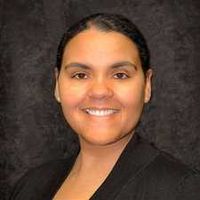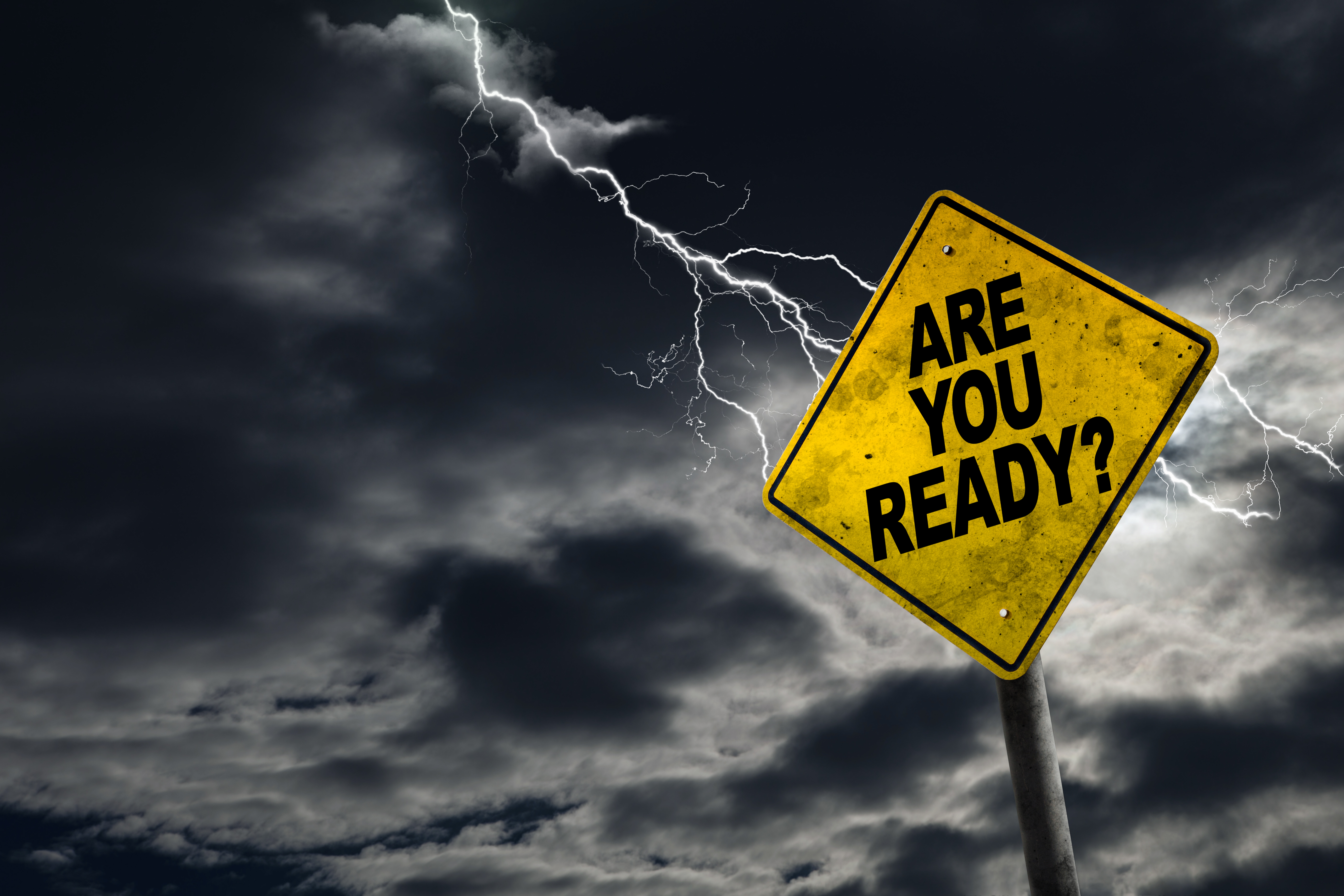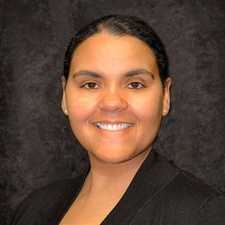How to Prepare For a Hurricane and Other Natural Disasters
As worries about hurricanes, wildfires, floods and other natural disasters accelerate, here are some key steps to take to get ready for whatever might come your way.

Erin Bendig

Profit and prosper with the best of Kiplinger's advice on investing, taxes, retirement, personal finance and much more. Delivered daily. Enter your email in the box and click Sign Me Up.
You are now subscribed
Your newsletter sign-up was successful
Want to add more newsletters?

Delivered daily
Kiplinger Today
Profit and prosper with the best of Kiplinger's advice on investing, taxes, retirement, personal finance and much more delivered daily. Smart money moves start here.

Sent five days a week
Kiplinger A Step Ahead
Get practical help to make better financial decisions in your everyday life, from spending to savings on top deals.

Delivered daily
Kiplinger Closing Bell
Get today's biggest financial and investing headlines delivered to your inbox every day the U.S. stock market is open.

Sent twice a week
Kiplinger Adviser Intel
Financial pros across the country share best practices and fresh tactics to preserve and grow your wealth.

Delivered weekly
Kiplinger Tax Tips
Trim your federal and state tax bills with practical tax-planning and tax-cutting strategies.

Sent twice a week
Kiplinger Retirement Tips
Your twice-a-week guide to planning and enjoying a financially secure and richly rewarding retirement

Sent bimonthly.
Kiplinger Adviser Angle
Insights for advisers, wealth managers and other financial professionals.

Sent twice a week
Kiplinger Investing Weekly
Your twice-a-week roundup of promising stocks, funds, companies and industries you should consider, ones you should avoid, and why.

Sent weekly for six weeks
Kiplinger Invest for Retirement
Your step-by-step six-part series on how to invest for retirement, from devising a successful strategy to exactly which investments to choose.
The Atlantic hurricane season is winding down, but the risks are far from over. So far, nine named storms have developed — four of them hurricanes, including three major systems with winds topping 115 mph. While the U.S. mainland has largely avoided catastrophic landfalls, experts warn that even late-season cyclones can unleash destructive winds, torrential rain and flooding. For longtime Florida resident Rich Franco, that’s reason enough to stay vigilant.
As a resident of storm-prone central Florida for close to 40 years, Rich Franco prepares for pretty much anything Mother Nature throws his way. He has two generators at the ready, one with 5,500 kilowatts of power and a second with 9,500.
He keeps important papers and family photos in plastic bins, and valuable artwork is earmarked for a protected closet, along with hard drives and his desktop. As for Franco’s lawn, it might not be flood-proofed, but it’s close, thanks to a drainage trench he dug in 2004 after four hurricanes hit the Sunshine State in just six weeks.
From just $107.88 $24.99 for Kiplinger Personal Finance
Become a smarter, better informed investor. Subscribe from just $107.88 $24.99, plus get up to 4 Special Issues

Sign up for Kiplinger’s Free Newsletters
Profit and prosper with the best of expert advice on investing, taxes, retirement, personal finance and more - straight to your e-mail.
Profit and prosper with the best of expert advice - straight to your e-mail.
“It was one of the most depressing times of my life,” says Franco, who spent 10 days in a dark house without power as temperatures outside soared past 80 degrees. During the day, he picked up branches and drove around looking for ice; at night, he slept on his porch.
Franco, 74, says the experience was bad enough when he was 55, but today, it’s one he can’t imagine repeating.
“That stress, you don’t want it, especially as a senior. When you’re younger, you’re oblivious to the potential. You think if it’s bad, I’ll get out. By being prepared, instead of being 100% stressed, I’m 50% (to) 60% stressed."
How to prepare for a hurricane, wildfires or other natural disasters — a checklist
How do you get ready for a natural disaster? Prepare. Prepare. Prepare.
Whether it’s a hurricane, wildfire or flood, the key to staying safe is planning ahead. The best time to start is before the threat is near. Begin with a simple step-by-step plan you can build on over time.
Here are five ways to prepare early for any natural disaster:
- Arrange for a place to meet family, friends and pets.
- Know how you'll communicate, where you'll go and practice that escape plan.
- Put together a document with emergency contacts, a list of physicians, any special needs or limitations you have and insurance information.
- Pack a seven-day supply of medications and food, and seven days’ worth of cash.
- Prepare a “Go Bag” with important papers in waterproof containers, a flashlight, batteries, a first aid kit, canned foods and a can opener, a NOAA weather radio and water, among other items.
For more in-depth guidance, several trusted organizations offer detailed checklists and emergency planning tools to help you prepare for natural disasters and weather-related emergencies.
Here are a few of the most comprehensive resources available:
- AARP Weather Safety Checklist
- FEMA Disaster Supplies Checklist
- CDC Natural Disasters and Severe Weather Guides
- Red Cross Hurricane Supply List

Some places are more prone to specific types of calamities than others — wildfires in the West, and hurricanes on the Gulf Coast, for example. Here are some specific items that might be more relevant to note, depending on where you live:
How to prepare for wildfires
- Be sure you have the right number of smoke alarms for your house. Test them monthly, and replace the batteries annually.
- Make sure your roof has a Class A rating for fire resistance.
- Clear potentially flammable items from your lawn.
- Store flammable materials in safe containers away from the house.
- Use fire-resistant materials for repairs.
- To make your house more visible in smoke, turn on outside lights and leave a light on in every room.
- Wear an N95 mask to protect your lungs.
Keep your most important documents safe in emergencies with this fireproof and water-resistant document organizer. Featuring multiple compartments and a secure zipper, it’s portable, durable, and ideal for storing everything from passports to insurance papers.
How to prepare for a hurricane
- Know the difference between a hurricane watch — typically announced 48 hours ahead of tropical-force winds — and a hurricane warning, which is more serious.
- Put outdoor furniture and lawn items into storage.
- Move your furniture and valuables to higher floors if possible.
- Fill plastic bottles, bathtubs and sinks with clean water.
- Fill your car’s gas tank.
- Clear rain gutters.
- Use storm shutters or nail pieces of plywood to outside window frames.
- Be ready to turn off your power.
- Stay away from windows.
How to prepare for tornadoes and twisters
- Remove heavy items stored on high shelves, and make sure any toxic substances are stored safely.
- Know the difference between a tornado watch — which means a tornado is possible — and a tornado warning — which means the twister is already underway or will be soon. Know your area’s warning sirens for each.
- Designate an area of your home as a shelter, preferably an underground or windowless room. Keep blankets handy to shield yourself.
- If you live in a mobile home, be sure you have a place to which you can evacuate.
- If you're in a car when a tornado is approaching, don't try to drive away. Get out of the vehicle and take shelter in a nearby building.
- If there isn’t time to get to a building, get out of the car and find a ditch or low area away from the vehicle.
Older Americans could be at particular risk, since they tend to retire to coastal areas that are vulnerable to flooding, and to the rural West, which is plagued by wildfires.
During 2018’s Camp Fire in California, the average age of the 85 people who died was 72. The victims of Hurricane Ian, which shredded many of Florida’s beachfront towns in 2022, were overwhelmingly 60 or older.
With more chronic illnesses and mobility issues, seniors can also find it more physically and emotionally challenging to evacuate ahead of or during an emergency. Many seniors live alone and worry about their safety, whether they choose to leave or stay behind, but feel they have little choice, given their health issues.
Yet, many retirees and non-retirees drag their feet when it comes to preparing for the worst.
Only 40% of adults ages 50 to 80 have spoken with family members or a friend about an evacuation plan, a little more than half have a seven-day supply of food and water, and fewer than half have signed up to receive local emergency news, according to the National Poll on Healthy Aging, from the University of Michigan.
Consider natural disaster insurance
It's important that you have homeowners insurance, and that you review your policy with your agent so you understand what is and isn't included.
Depending on where you live, consider separate or enhanced policies that cover different emergencies.
Flood and earthquake policies are always separate from standard homeowners' insurance. Learn more about flood insurance on FEMA's Floodsmart website, and the California Department of Insurance has more information on earthquake insurance.
You might be able to minimize claims and get a discount on your insurance if you make upgrades that improve your house’s defenses against disasters. If there are upgrades that will make your house safer, such as permanent storm shutters, make them as soon as possible.
For people who can’t afford policies with all the bells and whistles, there are a few strategies to bring down the cost, says Amy Bach, executive director of United Policyholders, an advocacy group that helps consumers settle homeowner-policy claims.
- Reduce your contents coverage, which insures personal items such as jewelry, art and computers.
- Trim coverage for structures you can live without, such as a covered garage or tool shed.
- Consider an “actual cash value” policy, rather than the standard “replacement cost” policy, if money is very tight, Bach says. In an actual cash value policy, an insurer covers only the depreciated value of your home or belongings. It’s far from optimum, warns Bach, though better than no policy at all.
Explore and compare some of today's top home insurance offers with the tool below, powered by Bankrate:
You might also want to brace yourself for negotiating with your insurer in the disaster’s aftermath. It's not uncommon for an insurance claims adjuster to say the cost to repair is X and your contractor says it's 3X, says Bach.
If that happens, start by trying to solve the issue yourself, she advises, noting that her organization will provide free guidance. Get an estimate in writing of the reasonable cost of repair from a professional, and use that to make your argument. Option two is to go to your state’s Department of Insurance, which will have a consumer division to assist you without a charge.
Alternatively, if you have the means, you can hire a professional to take over the fight. A reputable public adjuster will charge about 7% to 10% of what they recover, but will also know how to navigate the system.
Lawyers should be the choice of last resort, says Bach. “They don’t speak construction, and as soon as you hire one, the insurer will lawyer up, as well.”
Finally, for maximum peace of mind, invest in your community. Time and again, those with strong social connections fare better during disasters, regardless of age, income, or background.
If you’ve moved to a new area, especially in a high-risk region such as Florida, take the time to build relationships with your neighbors. In an emergency, those connections can make all the difference.
Note: This item first appeared in Kiplinger’s Retirement Report, our popular monthly periodical that covers key concerns of affluent older Americans who are retired or preparing for retirement. Subscribe for retirement advice that’s right on the money.
Related Content
Profit and prosper with the best of Kiplinger's advice on investing, taxes, retirement, personal finance and much more. Delivered daily. Enter your email in the box and click Sign Me Up.

Carla Ayers joined Kiplinger in 2024 as the eCommerce and Personal Finance Editor. Her professional background spans both commercial and residential real estate, enriching her writing with firsthand industry insights.
Carla has worked as a personal finance and real estate writer for Rocket Mortgage, Inman and other industry publications.
She is passionate about making complex real estate and financial topics accessible to all readers. Dedicated to transparency and clarity, her ultimate goal is to help her audience make informed and confident decisions in their financial pursuits.
- Erin BendigPersonal Finance Writer
-
 Stocks Sink With Alphabet, Bitcoin: Stock Market Today
Stocks Sink With Alphabet, Bitcoin: Stock Market TodayA dismal round of jobs data did little to lift sentiment on Thursday.
-
 Betting on Super Bowl 2026? New IRS Tax Changes Could Cost You
Betting on Super Bowl 2026? New IRS Tax Changes Could Cost YouTaxable Income When Super Bowl LX hype fades, some fans may be surprised to learn that sports betting tax rules have shifted.
-
 How Much It Costs to Host a Super Bowl Party in 2026
How Much It Costs to Host a Super Bowl Party in 2026Hosting a Super Bowl party in 2026 could cost you. Here's a breakdown of food, drink and entertainment costs — plus ways to save.
-
 How Much It Costs to Host a Super Bowl Party in 2026
How Much It Costs to Host a Super Bowl Party in 2026Hosting a Super Bowl party in 2026 could cost you. Here's a breakdown of food, drink and entertainment costs — plus ways to save.
-
 3 Reasons to Use a 5-Year CD As You Approach Retirement
3 Reasons to Use a 5-Year CD As You Approach RetirementA five-year CD can help you reach other milestones as you approach retirement.
-
 Your Adult Kids Are Doing Fine. Is It Time To Spend Some of Their Inheritance?
Your Adult Kids Are Doing Fine. Is It Time To Spend Some of Their Inheritance?If your kids are successful, do they need an inheritance? Ask yourself these four questions before passing down another dollar.
-
 The 4 Estate Planning Documents Every High-Net-Worth Family Needs (Not Just a Will)
The 4 Estate Planning Documents Every High-Net-Worth Family Needs (Not Just a Will)The key to successful estate planning for HNW families isn't just drafting these four documents, but ensuring they're current and immediately accessible.
-
 Love and Legacy: What Couples Rarely Talk About (But Should)
Love and Legacy: What Couples Rarely Talk About (But Should)Couples who talk openly about finances, including estate planning, are more likely to head into retirement joyfully. How can you get the conversation going?
-
 How to Watch the 2026 Winter Olympics Without Overpaying
How to Watch the 2026 Winter Olympics Without OverpayingHere’s how to stream the 2026 Winter Olympics live, including low-cost viewing options, Peacock access and ways to catch your favorite athletes and events from anywhere.
-
 Here’s How to Stream the Super Bowl for Less
Here’s How to Stream the Super Bowl for LessWe'll show you the least expensive ways to stream football's biggest event.
-
 The Cost of Leaving Your Money in a Low-Rate Account
The Cost of Leaving Your Money in a Low-Rate AccountWhy parking your cash in low-yield accounts could be costing you, and smarter alternatives that preserve liquidity while boosting returns.
